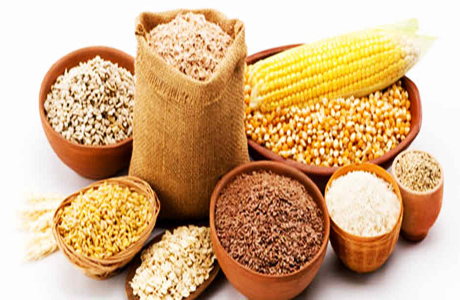The commodity pile-up
By: Ashfak Bokhari
 The Pakistan Agriculture Storage and Services Corporation still finds itself trapped in a Catch-22 situation over the disposal of piled-up rice stock it procured seven years ago to stabilise the market.
The Pakistan Agriculture Storage and Services Corporation still finds itself trapped in a Catch-22 situation over the disposal of piled-up rice stock it procured seven years ago to stabilise the market.
Despite repeated issue of the tender, the latest being the fourth, no one is coming forward to buy the commodity.
The corporation is desperate to wriggle out of this predicament and is now willing to sell the stock at a lower price, having purchased it at Rs75 per kg.
In November Passco was approached by a traders group with an offer to lift the stock at the rate of Rs50 per kg but with a condition to take delivery spread over a six-month period.
The bid was rejected by the corporation, which then thought of offering the leftover rice to its own employees at the reduced rate. But they also showed reluctance to avail the offer.
The Pakistan Agriculture Storage and Services Corporation (Passco) had procured 200,000 tonnes of rice in 2008 on the directive of the federal government to help maintain the support price of paddy crop in the open market and protect the farmers from losses..
About half of the stock was sold in 2009-10 at the rate of Rs75 per kg. In the past seven years, the losses the corporation suffered reportedly come to Rs24bn. The tenders being issued these days relate to disposal of 1,648.75 tonnes of rice. The unsold stock is stored at a rice mill..
It was in the context of this episode that the Rice Exporters Association of Pakistan (REAP) has warned the government against involving itself in rice business in future as procuring the commodity from farmers at a high rate tends to destabilise the rice market.
If the government intends to help or support the farmers, it should give them direct subsidy.
The private sector, it asserted, has invested billions of rupees in building an infrastructure and it should not be tampered with by the government.
The falling trend of commodity prices in the global market has created difficulties for Pakistani exporters.
Once again, there is a glut of major commodities such as wheat, rice and sugar in the country. On the one hand, lower international prices are discouraging their exports and, on the other, there has been no disposal of stock of the previous crop while the new crop is about to arrive.
In case of sugar cane crop, it is more than three months that the ‘formal’ cane crushing has yet begun owing to dispute over cane price.
The downward trend in rates of most of the rice varieties has, meanwhile, caused a rift among exporters in Sindh.
The office-bearers of Sindh Balochistan Rice Millers and Traders Association have suspended members belonging to Rice Exporters Association of Pakistan (Reap) for ‘creating hindrances in the export of rice’. Similarly the latter group has expelled the members of the former group for damaging the Reap’s cause.
As the infighting rages, huge stocks of Irri-6 lying unprotected at many rice mills in lower Sindh carry the risk of becoming unusable if not exported on time.
The Irri-6 rate had come down from Rs3,400 to Rs2,700 per 100kg in the global markets. The basmati variety is currently being traded at around Rs3,000 per maund, against Rs4,500 last year.
The exporters have been given at least least $50 per tonne subsidy on rice export.
The current glut of basmati rice is believed to be about 1m tonnes. Normally, the country produces about 2m tonnes of basmati rice. Of this, half amount caters to the domestic market while the remaining half is exported. But since 2011, the exports are in decline.
The Economic Co-ordination Committee (ECC) of the Cabinet has allowed Punjab and Sindh to export 800,000 and 400,000 tonnes of wheat respectively.
Similarly, the ECC has allowed export of 650,000 tonnes of sugar but not later than May 15, 2015. There will be a 20pc regulatory duty on the import of raw and beet sugar.
The exporters will get an inland freight subsidy of Rs2 per kg and cash subsidy of Rs8 per kg. The total cost of the subsidy which comes to Rs6.5bn is to be borne by both the federal and provincial governments on equal basis.
But it is worrisome that despite rebate incentives, the wheat export policy has failed yet to attract the exporters. So far, only one deal has been signed for a quantity of 3,000 tonnes, although Punjab and Sindh food departments have received a number of queries regarding purchase of wheat for export purposes. The falling trend of commodity prices in the global market has created difficulties for Pakistani exporters.
Adoption of sustainable and regenerative agricultural
production systems, suited to diverse rural settings, will
also considerably help improve the existing productive
capacity of small-scale farmers.
Unfortunately, there is
little evidence of such changes taking place.
It is necessary for national policymakers, as well as the
international trade and development agencies, to begin
taking agro-ecological approaches towards farming more
seriously.
March, 2015
Source: Dawn News